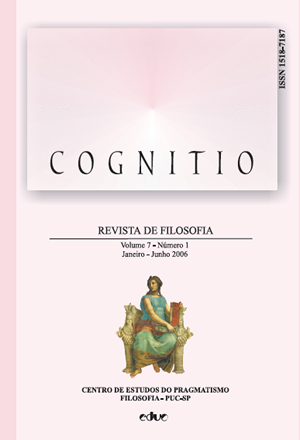The Anti-cartesian Concepts of the Self in Peirce and Bakhtin
Keywords:
Cartesian subject, Sign, Man-sign, Dialogism, OthernessAbstract
Since the end of the nineteenth century gradually and increasingly the Cartesian subject has come into a radical crisis. Under the labels of “crisis of the self” or “crisis of subjectivity” what is criticized is the definition of a universal, stable, unified, total, totalizing, interiorized, and individualized subject. Beginning in psychoanalysis and philosophy, the discourses about this crisis are nowadays spread through a multiplicity of areas: in the feminist discourses, in cultural studies, in post colonialist analysis, all of them evincing that there is no self and no subject outside history and language, outside culture and power relations. After a brief presentation of the notion of self in psychoanalysis, this paper will argue that C. S. Peirce and M. M. Bakhtin were not only pioneers in the criticism of the Cartesian notion of the self but they also presented original conceptions of the self based on the central role that language plays in the constitution of the human being.Metrics
Metrics Loading ...
Downloads
Published
2018-06-30
How to Cite
Santaella, L. (2018). The Anti-cartesian Concepts of the Self in Peirce and Bakhtin. Cognitio: Revista De Filosofia, 7(1), 121–132. Retrieved from https://revistas.pucsp.br/index.php/cognitiofilosofia/article/view/13589
Issue
Section
Cognitio Papers









